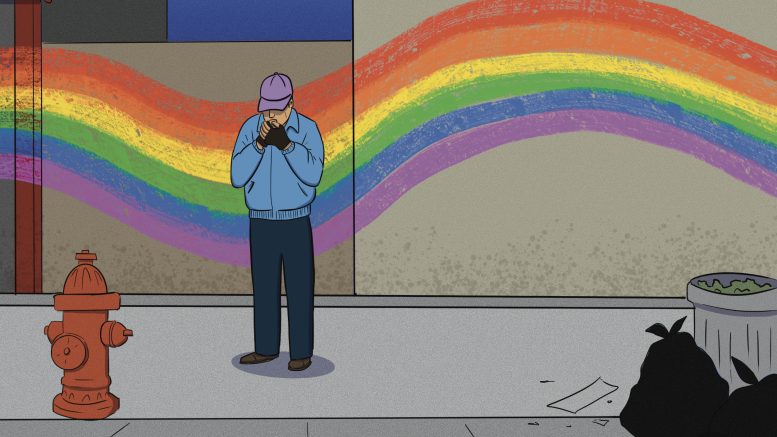Pride season in Canada, held from June to September, is a time of celebration for the
2SLGBTQ+ community and those who love them. Pride involves a range of parties,
parades and celebrations that honour the contributions made by 2SLGBTQ+
Canadians.
But while Pride marks a time of joy, the many 2SLGBTQ+ Canadians experiencing
poverty may find themselves unable to fully participate in the celebrations.
“The issue of poverty is not a positive issue,” said Nick Mulé, professor at York
University’s school of gender, sexuality and women’s studies. “It’s not something
that people think over in this time of year where there are Pride celebrations.”
Mulé explained that while celebration and enjoyment during Pride is important and
necessary for the 2SLGBTQ+ community, it is equally important to use Pride as a time
to reflect and acknowledge members of the community who struggle to make ends
meet.
As 2SLGBTQ+ individuals are particularly vulnerable to poverty, addressing these
realities allows for changes to be made in social policy and service provision.
That is the goal of a nationwide study led by Mulé, the 2SLGBTQ+ Poverty in Canada:
Improving Livelihood and Social Wellbeing project. The study looks at 2SLGBTQ+
poverty in Canada and is informed by lived experiences, diversity and decolonizing
and intersectional approaches. The research team is comprised of 27
multidisciplinary academics at universities in Canada and the United States.
“This is the first study that has taken place across the country,” Mulé said. “The
research that has happened in the past, the smaller pocket type research, has been
carried out by researchers who are all on this team now, because we’re all very
interested in […] gathering evidence at a national level.”
The study is funded through a $2.5 million grant awarded by the Social Sciences and
Humanities Research Council of Canada. The project will last between six and seven
years. Now in its third year, data collection has begun.
The study has four key objectives.
First, it aims to create a nationwide dataset documenting 2SLGBTQ+ communities’
lived experiences with poverty, allowing researchers to take an intersectional
approach to poverty rates and risks, and their associated causes and consequences.
Second, the research process will make meaningful societal impact by fostering
collaborations between 2SLGBTQ+ Canadians with lived experiences of poverty,
community partners, scholars and students.
Third, the project will share 2SLGBTQ+ poverty knowledge in order to inform
academic, government, community and funding bodies.
Fourth, the study will use evidence obtained from the data to create an action plan
to address poverty in Canada’s 2SLGBTQ+ communities.This plan can be used by
government agencies, non-profit organizations and private companies.
“One of the things that drives this project is that [we are] a community-based
research study,” Mulé said.
The study partners with community-based nonprofit organizations who work to
reduce poverty and advance 2SLGBTQ+ inclusion. Also supporting the research is a
community advisory board of 2SLGBTQ+ people with lived experience in poverty,
whose perspectives guide the direction of the project’s work.
Mulé explained that when conceptualizing the project and seeking funding,
discussions with community partners revealed that efforts made to address issues of
2SLGBTQ+ poverty were frequently disregarded by policymakers and funders.
It is likely that these groups were unable to provide significant resources due to a
lack of robust evidence demonstrating the link between 2SLGBTQ+ identity and
heightened poverty risk.
“That’s where we come in as researchers,” Mulé said. “We are working in
partnership with our community partners to produce the evidence, conduct this
research, […] analyze it, and start to picture out their interests, and what the reality
is of people in these communities who are affected by poverty.”
Ultimately, he explained, the project’s goal is to produce evidence that improves the
systems which impact 2SLGBTQ+ Canadians facing poverty.
“Through that, our community partners will have the evidence they need,” said Mulé.
“We are going to produce materials that advocate for change” across organizational
levels, “so that these communities are not left behind or unconsidered when it
comes to anti-poverty work,” he said.



